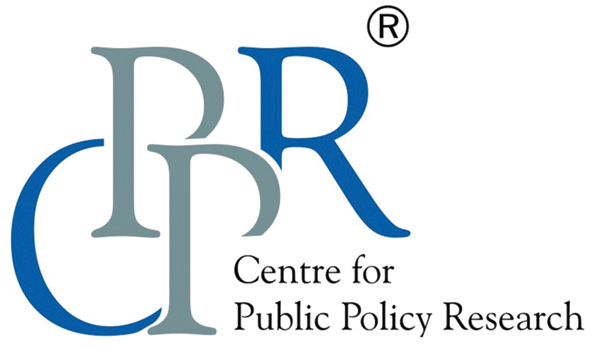Articles

Moment of Reckoning’ for UDF and Congress in Kerala
May 25, 2021
The WhatsApp move to sue the Indian government is a red herring
May 27, 2021Bright Future for Vietnam-US Relations under Joe Biden

It is now four months since President Joe Biden assumed office as the 46th President of the United States and his Administration has taken keen interest in improving bilateral relations with Vietnam. On their part, the Vietnamese side has conveyed the customary congratulatory messages to President Biden and expressed a desire to work closely with his team. Although there is nothing very spectacular that has been exchanged between the two sides, there are at least two issues that merit attention.
First is about economics and trade which has seen some very positive developments. Among these, Vietnam has been removed from the US’ list of ‘currency manipulators’ and “Unfair acts, policies, and practices”. This signals President Biden Administration’s desire to salvage the damage done by the previous Administration on bilateral trade issues and chooses to start the trade relations afresh on a clean slate.
The ‘Bilateral Relations Factsheet’ published by the Biden Administration in April 2021 notes that bilateral trade and US investments in Vietnam have “grown dramatically”. During the last five years, the bilateral trade (in goods) has gone up from $451 million to over $90 billion in 2020 in which US exports to Vietnam were worth over $10 billion in 2020 and US imports in 2020 were worth $79.6 billion. Meanwhile US investments in Vietnam in 2019 was $2.6 billion. Also, both countries are important members of several multilateral organisations such as the Asia-Pacific Economic Cooperation (APEC), International Monetary Fund, World Bank, and World Trade Organization including the United Nations of which Vietnam currently holds the position of a non-Permanent Member of the United Nations Security Council for 2020-2021.
Second, on the strategic front, Vietnam has been steadfast and has shied away from taking sides between the US and China. Hanoi has made it amply clear to both Washington and Beijing that it does not wish to be embroiled in any great power competition; instead it will remain guided by its national interests and also be driven by the collective wisdom of the ASEAN of which it held Chairmanship in 2020.
US -Vietnam bilateral relations are guided by the 2013 Comprehensive Partnership which has been supplemented-reinforced through the Joint Statements of 2015, 2016 and 2017. In 2020, Vietnam and the United States commemorated 25 years of their diplomatic relations. Under the Comprehensive Partnership agreement, the US supports capacity building for Vietnam’s law enforcement, regional cross-border cooperation, and implementation of international conventions and standards.
Under President Biden, the US continues to promote ‘free and open Indo-Pacific’ and the Interim National Security Strategic Guidance issued in March 2021 notes that the US will deepen partnership with Vietnam along with the Association of Southeast Asian Nations (ASEAN) member states to “advance shared objectives” ostensibly referring to the Indo-Pacific.
Similarly, Japan too has been promoting Indo-Pacific to Vietnam and in a recent telephonic conversation between Vietnamese President Nguyen Xuan Phuc and Prime Minister Suga Yoshihide, the latter emphasised that Vietnam was important partners in Tokyo’s efforts to realize a “free and open Indo-Pacific.” Hanoi is not swayed by Washington’s and Tokyo’s persuasions and its national interest does not permit it to be swayed by such persuasions or take sides.
Similarly, Vietnam is not persuaded by China with whom it has major maritime disputes in the South China Sea. After the 13th National Congress of the Communist Party of Vietnam in early 2021, the Party was unanimous about their country’s relationship with China and President Nguyen Xuan Phuc has made clear that Hanoi will not be involved in major power competition between China and the US; nor will it take sides with the US to deal with China. Furthermore, even if the US steps up its attempts to woo Vietnam, “the South China Sea issue will not make a big wave in China-Vietnam relations”. In essence, Hanoi does not appear to be ready to be drawn by any one of them.
Among many other bilateral issues, the Biden Administration acknowledges the importance of people to people contacts wherein the students play an important role. In that context, “Tens of thousands of Vietnamese study in the United States, contributing nearly $1 billion to the U.S. economy. The Fulbright University Vietnam, which matriculated its first undergraduate cohort in Fall 2019, brings world-class, independent U.S.-style education to Vietnam”.
At another level, the US notes with satisfaction the Vietnamese support for legacy issues such as UXO/demining, MIA accounting, and remediation of Agent Orange Joint POW/MIA Accounting Command. The United States is the largest single donor to UXO/mine action in Vietnam given that cluster munitions date back to its war with Vietnam.
However, both sides have not announced any new defence and security cooperation initiatives. The existing arrangements for training, material capacity building, port call and high level military exchanges under the 2011 Bilateral Defense Cooperation agreement and the 2015 U.S.-Vietnam Joint Vision Statement on Defense Relations continue as hitherto. It is fair to assume that the US will offer military support but Vietnam is expected to be discreet in accepting given the high sensitivities of such transactions by the Chinese Communist Party leadership.
Views expressed by the author are personal and need not reflect or represent the views of Centre for Public Policy Research.
Dr Vijay Sakhuja is Honorary Distinguished Fellow with CPPR and associated with our Centre for Strategic Studies. Dr. Sakhuja, a former Indian Navy officer, is also former Director, National Maritime Foundation, New Delhi. He earned his MPhil and PhD from the Jawaharlal Nehru University, New Delhi. He specializes in issues of national security and public policy, particularly in the context of ocean affairs, geopolitics, Climate Change, Arctic, Blue Economy and 4th Industrial Revolution Technologies.

